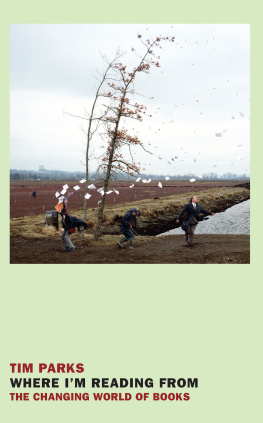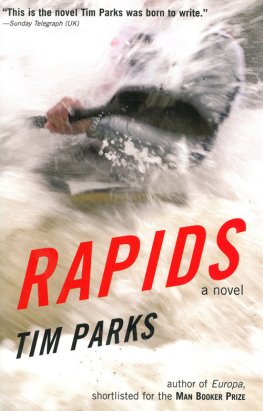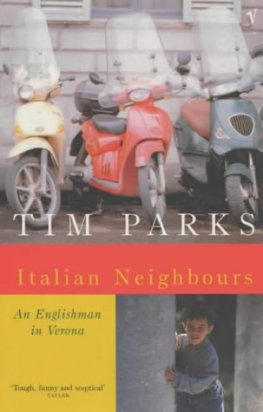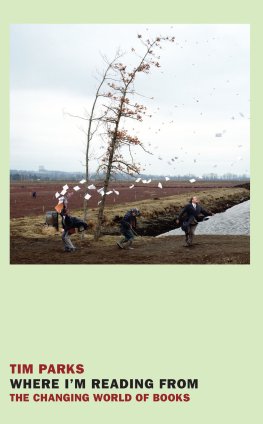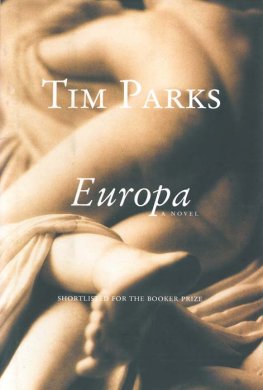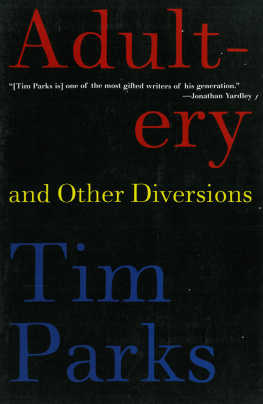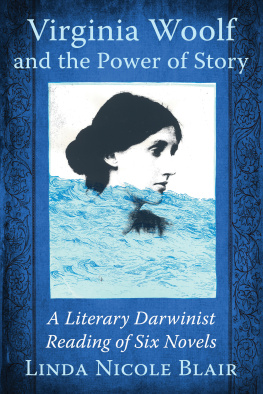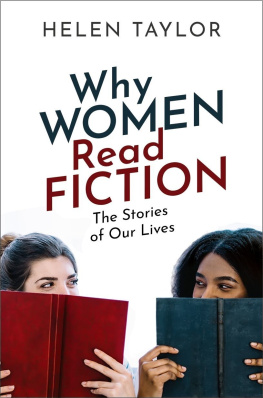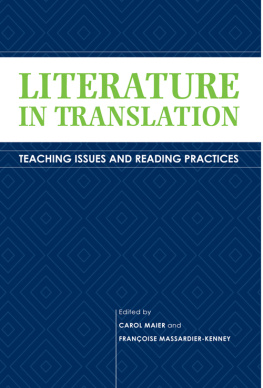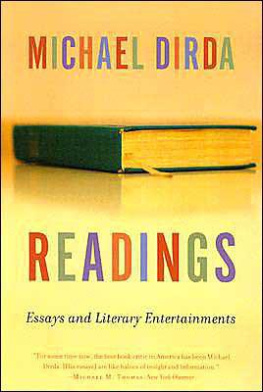TIM PARKS has written seventeen novels, including Europa, which was short-listed for the Booker Prize, and most recently, Painting Death. He is the author of several works of non-fiction, including Italian Neighbors and Italian Ways. Parks has also translated the works of Alberto Moravia, Giacomo Leopardi, and Niccol Machiavelli, among others, and he is a frequent contributor to The New York Review of Books and the London Review of Books. He lives in Italy.
Acknowledgments
ID JUST LIKE to thank everybody who made this book what it is. Above all Hugh Eakin for all his thoughtful input and editing on every single piece, then Robert Silvers of course, Rea Hederman, Gabriel Winslow-Yost, and all the team at The New York Review of Books. Books are a joint effort. Many many thanks.
NB: Impersonal use of the third-person pronoun has become a problem for the contemporary writer in English. People have grown sensitive to issues of gender. Do I say, Someone who has been told he is dying and must make his will... or Someone who has been told he or she is dying and must make his or her will? My own feeling is that the old he was always understood to be impersonal and without gender while the he-or-she formula is fussy and inelegant, constantly reminding readers of a problem that isnt really there. For the most part then, I have stayed with the old impersonal he and I invite my readers to believe that I do not do this in a spirit of chauvinism, but to keep the focus sharp.
Where Im Reading From
The Changing World of Books
Tim Parks
NEW YORK REVIEW BOOKS

New York
THIS IS A NEW YORK REVIEW BOOK
PUBLISHED BY THE NEW YORK REVIEW OF BOOKS
435 Hudson Street, New York NY 10014
www.nyrb.com
Copyright 2015 by Tim Parks
All rights reserved.
Jacket photograph: Jeff Wall, A Sudden Gust of Wind (after Hokusai), detail, 1993
Jacket design: Katy Homans
Library of Congress Cataloging-in-Publication Data
Parks, Tim.
Where I'm reading from : the changing world of books / by Tim Parks.
1 online resource. (New York Review Books Collections)
ISBN 978-1-59017-885-0 () ISBN 978-1-59017-884-3 (hardback)
1. Books and reading. 2. Fiction. 3. Authorship. I. Title.
Z1003
028'.9dc23
2014046215
ISBN 978-1-59017-885-0
v1.0
Contents
Introduction
ITS TIME TO rethink everything. Everything. What it means to write and what it means to write for a publicand which public. What do I want from this writing? Money? A career? Recognition? A place in the community? A change in the government? World peace? Is it an artifice, is it therapy? Is it therapy because it is an artifice, or in spite of that? Does it have to do with constructing an identity, a position in society? Or simply with entertaining myself, with entertaining others? Will I still write if they dont pay me?
And what does it mean to read? Do I want to read the things other people are reading, so I can talk to them? Which other people? Why do I want to talk to them? So that I can be of my time? Or so that I can know other times, other places? Do I read things to confirm my vision of the world, or to challenge it? Or is reading to challenge my vision a reassuring confirmation that I am indeed the courageous guy I thought I was? The more challenging the books I read the more complacent I feel.
Does the idea of one world, one culture, mean we are all being driven toward the same booksin which case how many writers can there possibly be? Or will everyone be a writer, but without being paid? No one can do without some semblance of immortality, remarked Emil Cioran. Ever since death came to be accepted as the absolute end, everybody writes!
Why do we so often disagree about the books we read? Is it because someones reading well and someones reading badly? The professor and the students? Because there are good books and bad, or because people with different backgrounds inevitably like different books? If so, can we begin to predict who will like what?
Most book talk is formulaic and has been for decades. Your average review offers a quick value judgment summed up in one-to-five stars at the top of the column. Why read on? Therell be a declaration of theme (worthy), an assessment of narrative competence, some mention of character and setting (weve all done a creative writing course), some praise, some reservations. Above all its understood that books are introduced into a fierce competition for what few crumbs of celebrity TV and film have left to them. They have to hit the ground running. Toward the end there may or may not be a precious quote the publisher can use for the cover of the paperback edition. In 99.9 percent of cases the reviewer knows perfectly well what books are for, why they are written and read, whats literature and whats genre. Hes ticking boxes. Or she. Understandably, the newspapers have reduced the books section to the size of a postage stamp.
For feedback theres the Internet. Sometime it feels like all feedback and no feed. Whats most surprising on sites where readers offer their own reviews is how similar they are to journalistic reviews. They dont object to distributing the Amazon stars. They know perfectly well how to hand out praise and punishment. They have their unquestioned criteria. The medium dictates the tone. I havent actually read the book, but...
In the weeklies that still cover books, the author interview comes in the form of the same ten questions for all. When did you last cry? What is your greatest regret? Its an invitation to look for distinction in quirkiness. Usually by email. Of the novels youve written, which is your favorite? What are you reading now, during the day and at bedtime? Apparently interviewers know that all authors read different things at bedtime. They are not allowed not to have a favorite novel, a greatest regret. The small photo running beside the piece is taken from the authors Facebook page at no expense to the paper.
The multiplication of literary prizes is in line with this. Their uncoupling from national literatures tells us that its the reputation of the prize that counts, not nurturing writers in a given community. People have invested money. The longlist is added to the shortlist to squeeze out a little more publicity. At the awards dinner, one writer is hoisted up to the pantheon and the others cast off into outer darkness. It doesnt matter that the winner was no ones first choice, that two members of the jury complained they couldnt finish the damn book. Its a winner now. By democratic process. And the winners sales outstrip the losers, the losers.
Meantime literary scholarship in the universities is impenetrable: less monumentally abstruse perhaps than in the rarefied heyday of structuralism and post-structuralism, but maybe thats because theres no need to work so hard not to be read these days. The tired jargon is enough, the tendency to confuse studies of literature with exercises in cultural history. It is astonishing how many hundreds of thousands of academic articles are produced to no end aside from the conferring of this or that teaching contract, how much endeavor and how little adventure.
Beneath all the chatter and the liturgy runs a fierce nostalgia for the literary myths of the past, for the gigantic figures of Dickens and Joyce, Hemingway and Faulkner. A writer cant even aim at that kind of aura today. But its that yearning for imagined greatness that drives the whole literary enterprise. Plus the publishers desperation to manufacture a bestseller to pay the bills. The idea of greatness is a marketing tool. See Franzen.

